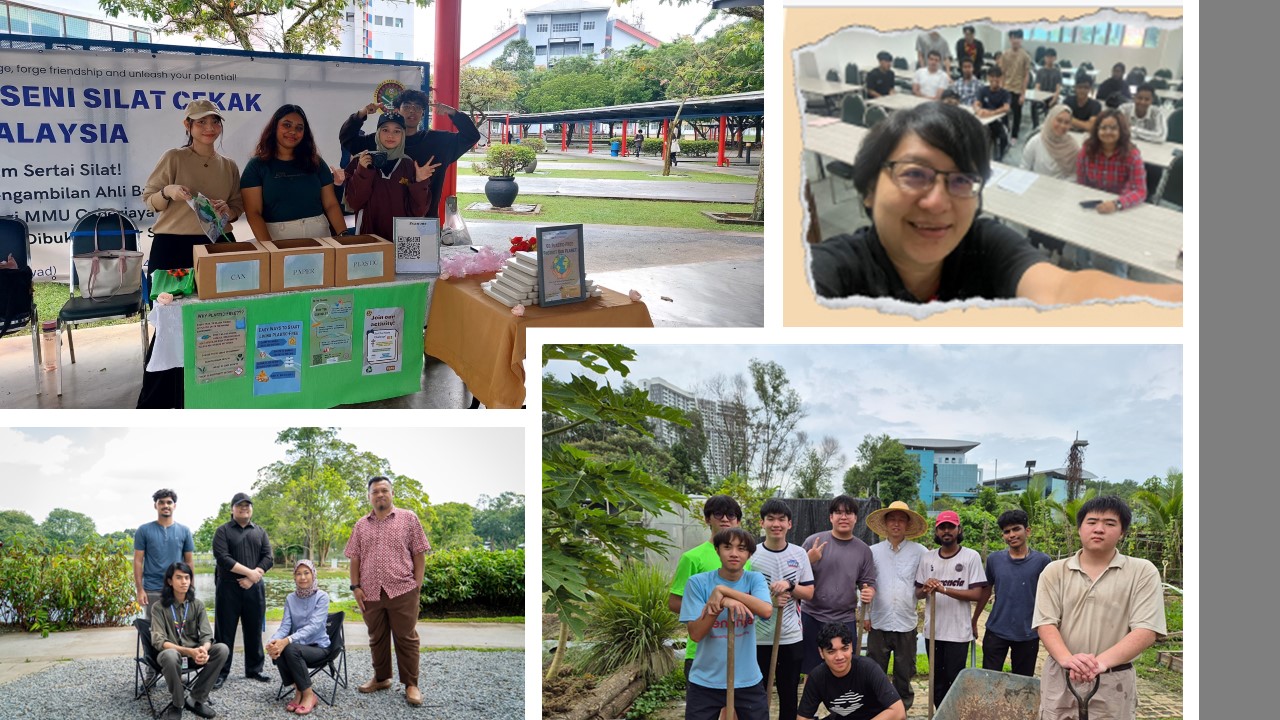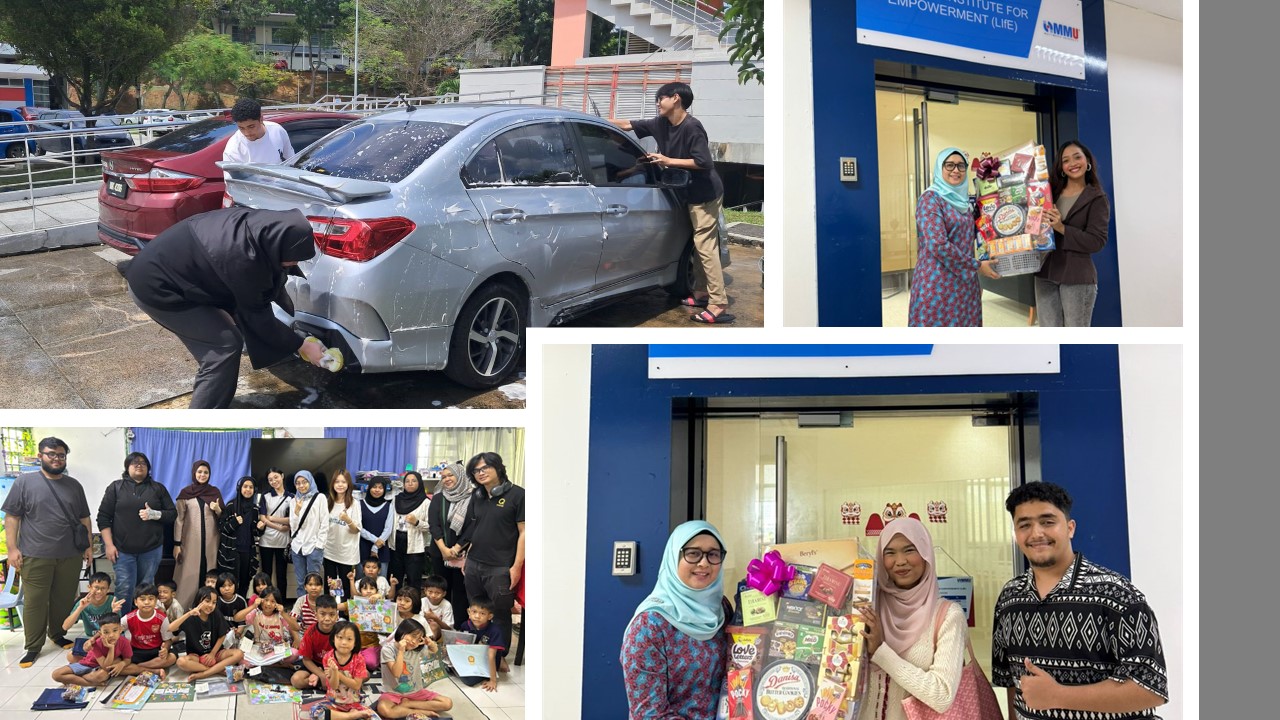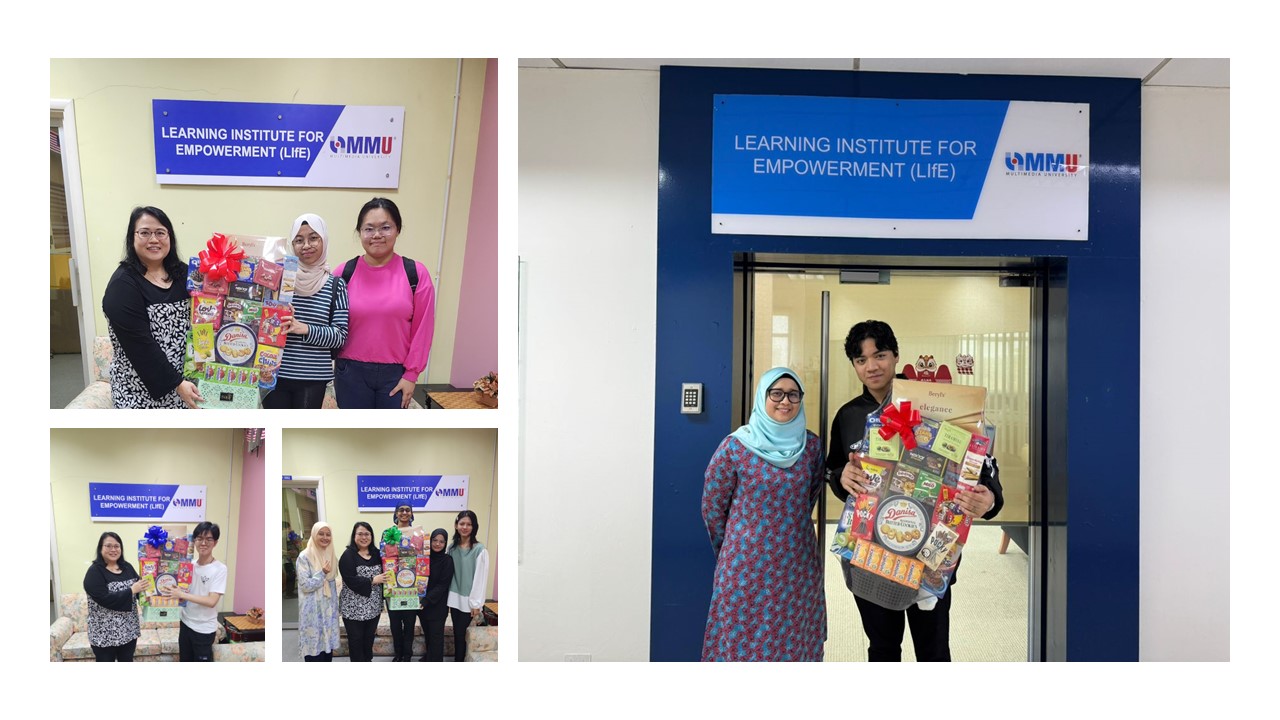Demonstrating a strong commitment to sustainability, MMU students from various faculties have taken proactive steps to promote sustainability through initiatives introduced as part of a course, Sustainable Society, offered by the Learning Institute for Empowerment (LIfE). Under the mentorship of dedicated lecturers, these students have developed impactful projects addressing key sustainability challenges within the community.
The Helping Local Farmers at Cyber Farm-UR project, led by students from the Faculty of Computing and Informatics (FCI) under Ms Noor Ain Rosly, tackled waterlogging issues by constructing a drainage system to improve soil conditions and plant growth. This initiative enhanced sustainable farming practices, strengthened community bonds, and raised awareness about food security. Meanwhile, the Plastic-Free Campaign by the Sustainable Society Group B from the Faculty of Applied Communication (FAC), under Ms Siti Mazmi, educated students on plastic waste reduction and proper recycling. The campaign featured an interactive Knowledge Waste Game, attracting 55 participants who collected eco-friendly items and 45 who committed to reducing plastic use.
Other projects focused on environmental conservation and social impact. The Cyberjaya Lake Gardens Initiative by Sustainable Society Group C from the Faculty of Creative Arts (FCA), guided by Mr Saufee Mohammad, explored the park’s role in preserving biodiversity. Students interviewed the Sepang Municipal Council to highlight its support for migratory birds, stray animal welfare, and plant conservation, recommending improved maintenance and technology integration. Additionally, students from the Faculty of Engineering (FOE), under Assoc. Prof. Dr. Tan Yi Fei, launched The Oil Recycle-Dispose Initiative, which educated the public on repurposing used cooking oil into biodiesel and using hair to clean oil spills. This project emphasised environmental responsibility, encouraging proper disposal methods through social media outreach and volunteerism.
Beyond environmental initiatives, students also championed social causes. The Charity Car Wash Padu, organised by the Faculty of Management (FOM) under Ms Diyana Abdul Mahad, raised funds for Pusat Jagaan dan Rawatan Orang Tua Al Ikhlas while promoting eco-friendly car washing techniques. Volunteers emphasised water conservation and teamwork, with recommendations for hosting regular fundraising events and collaborating with local businesses for sponsorship.
Meanwhile, Building Bridges: Education for Every Child, an initiative by NextGen MMU (Group V1) from the Faculty of Creative Multimedia (FCM) under Mr Mazlan Mahadzir, supported underprivileged children at Rumah Titian Kaseh by providing school supplies and free tutoring. This effort alleviated financial burdens on families and improved children’s literacy skills, with plans to expand fundraising, outreach, and partnerships with local organizations. Through these initiatives, our students have demonstrated their commitment to sustainability and social impact, reinforcing the university’s role in fostering responsible and engaged future leaders.
Melaka students were also involved in sustainable initiatives. The Hike Tuah project by the Faculty of Information Science & Technology (FIST) combined health, environmental awareness, and social engagement through a guided hike at Bukit Beruang. The Raising Recycling Awareness project, led by Faculty of Business (FOB) students, focused on educating kindergarten children in proper waste sorting and recycling techniques. The A Cleaner World, A Better Future project promoted recycling through awareness campaigns, a campus-wide collection drive, and collaboration with Tzu Chi. By educating students on the 5Rs (Refuse, Reduce, Reuse, Repair, Recycle), the initiative significantly reduced campus waste and encouraged community participation, with support from the Faculty of Engineering & Technology (FET).
Finally, the Faculty of Law students led the Sungai Melaka Clean-up project, tackling plastic pollution through a hands-on river cleaning initiative and a public awareness campaign. Volunteers successfully removed 4,000 kg of waste, engaged with the community, and raised awareness about responsible waste management. At the end of the course, the LIfE team honoured each group with a token of appreciation, celebrating their dedication and successful completion of their sustainability initiatives.



